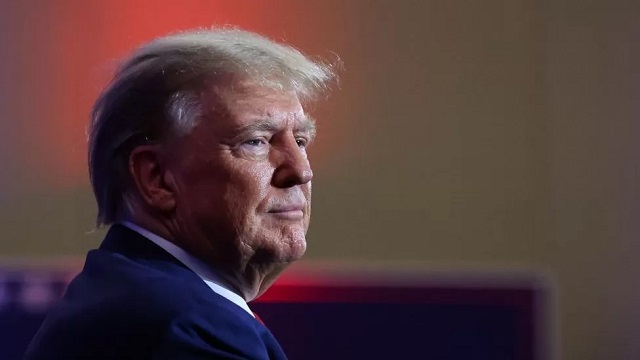
A federal judge has thrown out a $475m (£369m) defamation lawsuit brought by Donald Trump against CNN for allegedly likening him to Adolf Hitler.
The US cable network described Mr Trump’s unsubstantiated claim that the 2020 presidential election had been stolen from him as the “Big Lie”.
Mr Trump argued the phrase referred to a Nazi propaganda campaign used to justify the persecution of Jews.
US District Judge Raag Singhal ruled CNN’s comments were not defamatory.
In his ruling dismissing the lawsuit, Mr Singhal – who was appointed by Mr Trump – said the comments constituted opinion, and so Mr Trump could not legally sue the network for defamation.
“There is no question that the statements made by CNN meet the publication requirement for defamation under Florida law. The next question is whether the statements were false statements of fact. This is where Trump’s defamation claims fail,” wrote Mr Singhal in his verdict.
“CNN’s use of the phrase ‘the Big Lie’ in connection with Trump’s election challenges does not give rise to a plausible inference that Trump advocates the persecution and genocide of Jews or any other group of people. No reasonable viewer could (or should) plausibly make that reference.”
“CNN’s statements while repugnant, were not, as a matter of law, defamatory,” he added.
Neither CNN nor Mr Trump have commented on the verdict.
Mr Trump had argued in the lawsuit that the use of the phrase had created a “false and incendiary association” between him and Hitler.
The Republican presidential candidate is facing a number of other legal battles. He has been indicted twice and is facing 40 criminal charges over his alleged mishandling of classified government documents.
He is also facing 34 felony counts of falsifying business records related to a hush money payment to a porn star in New York, as well as a possible indictment relating to his alleged efforts to undermine the 2020 election.
“Repeat a lie often enough and it becomes the truth”, is a law of propaganda often attributed to the Nazi propaganda chief Joseph Goebbels.
But the description first appeared in Hitler’s Mein Kampf, 16 years before Goebbels’ use of the phrase, the European Center for Populism Studies says. Hitler first used it to describe the behaviour of Jews rather than a tactic he himself advocated.
Source: bbc.co.uk






Be the first to comment